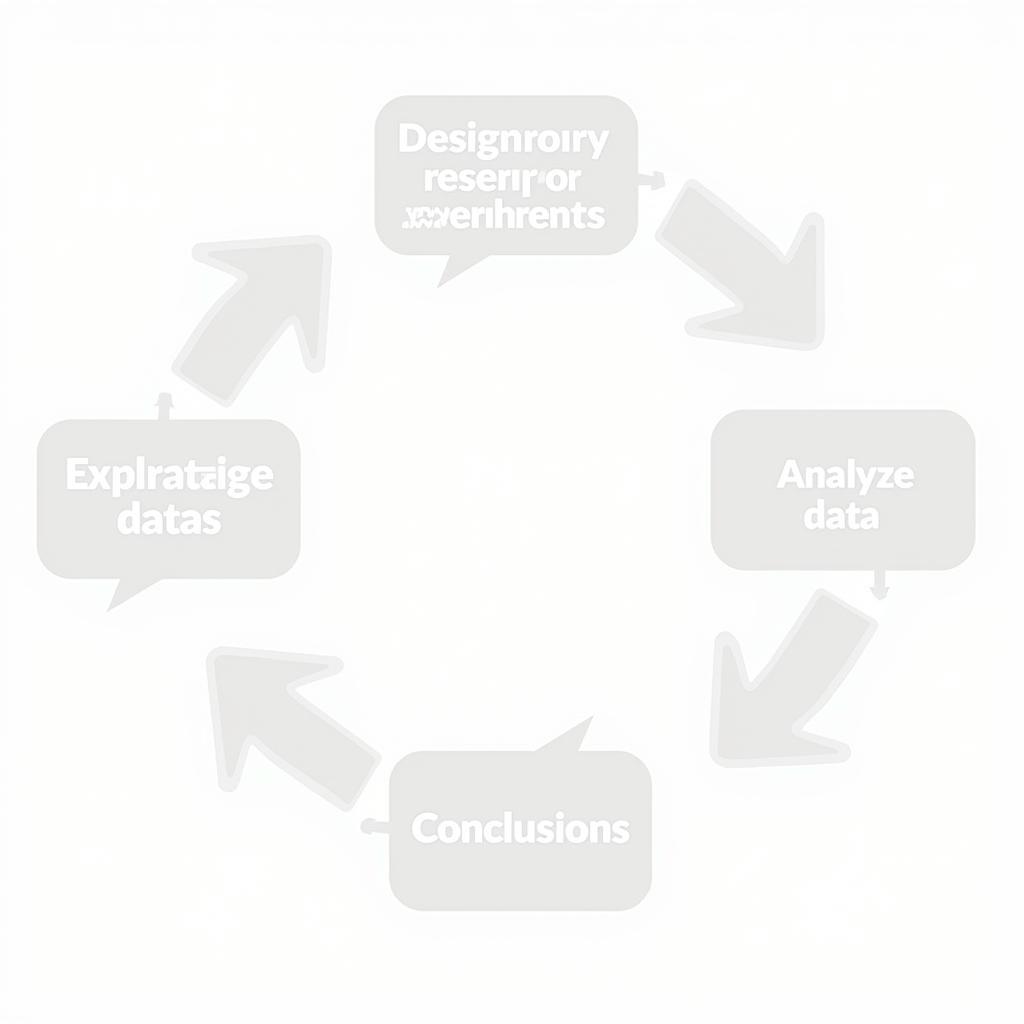Exploratory Research Questions are crucial to understanding the unexplained phenomena that surround us. In the world of paranormal investigation, where evidence is often elusive and interpretations vary widely, carefully crafted exploratory research questions become the guiding light. These questions allow us to delve into the unknown, formulate hypotheses, and pave the way for more structured investigations. Let’s explore how these powerful tools can be applied in paranormal research.
 Exploratory Research in Paranormal Investigation
Exploratory Research in Paranormal Investigation
What are Exploratory Research Questions?
Exploratory research questions, in the context of paranormal research, are open-ended inquiries designed to gain a preliminary understanding of a phenomenon. They differ from confirmatory research questions, which seek to test specific hypotheses. Think of them as the first step in unraveling a mystery. exploratory research questions examples They help us define the scope of the phenomenon, identify potential variables, and develop more focused research questions for later stages of investigation.
Why are Exploratory Research Questions Important in Paranormal Research?
The paranormal field is rife with anecdotal evidence, personal experiences, and a plethora of theories. Exploratory research questions provide a framework for systematically exploring these complex and often contradictory accounts. They offer a way to move beyond speculation and towards a more evidence-based approach.
How to Develop Effective Exploratory Research Questions
Developing strong exploratory research questions requires a thoughtful and nuanced approach. Here are some key considerations:
- Focus on the “What,” “How,” and “Why”: These question words are particularly useful in the exploratory phase. For example, “What types of paranormal activity are reported in this location?” or “How do environmental factors influence reported experiences?”
- Embrace Open-Endedness: Avoid questions that can be answered with a simple “yes” or “no.” Instead, encourage exploration and deeper understanding.
- Consider the Context: The specific location, history, and reported phenomena should inform your research questions.
- Be Flexible: Exploratory research is an iterative process. Be prepared to revise your questions as you gather more information.
 Examples of Paranormal Research Questions
Examples of Paranormal Research Questions
What is the nature of the reported paranormal activity? What are the common characteristics of haunted locations? How do witnesses describe their experiences? These are all excellent starting points for paranormal investigations. Dr. Evelyn Reed, a leading parapsychologist, notes, “Exploratory research is the bedrock of any scientific endeavor, especially in a field as complex and nuanced as paranormal research.”
Examples of Exploratory Research Questions in Paranormal Research
Here are some examples of exploratory research questions that can be applied to various paranormal phenomena:
- Ghosts and Hauntings: What are the common characteristics of reported hauntings? How do environmental factors correlate with reported paranormal activity in a specific location? examples of exploratory research questions
- EVP (Electronic Voice Phenomena): What are the potential sources of unexplained sounds recorded during EVP sessions? How do different recording techniques influence the capture of potential EVPs?
- Cryptozoology: What evidence exists to support the existence of cryptids? What are the cultural and historical origins of cryptid legends? exploratory research example questions
From Questions to Answers: The Next Steps
Exploratory research questions are not meant to provide definitive answers, but rather to lay the groundwork for more rigorous investigation. keyword research overture Once you’ve gathered preliminary data and refined your understanding of the phenomenon, you can move on to formulating more specific research questions and designing experiments or studies to test your hypotheses. how to make research objectives Professor Alistair Grimshaw, a respected historian specializing in folklore and mythology, adds, “The key to unlocking the secrets of the paranormal lies in the meticulous application of scientific principles, beginning with the formulation of insightful exploratory research questions.”
 Next Steps in Paranormal Research
Next Steps in Paranormal Research
In conclusion, exploratory research questions are essential for navigating the complex and often ambiguous world of paranormal research. By embracing open-ended inquiry, we can move beyond speculation and towards a more evidence-based understanding of these fascinating phenomena. Remember, exploratory research questions are the first step in a journey of discovery.
FAQ
Need help with your Paranormal Research? Contact us 24/7 at Phone: 0904826292, Email: research@gmail.com or visit us at No. 31, Alley 142/7, P. Phú Viên, Bồ Đề, Long Biên, Hà Nội, Việt Nam.